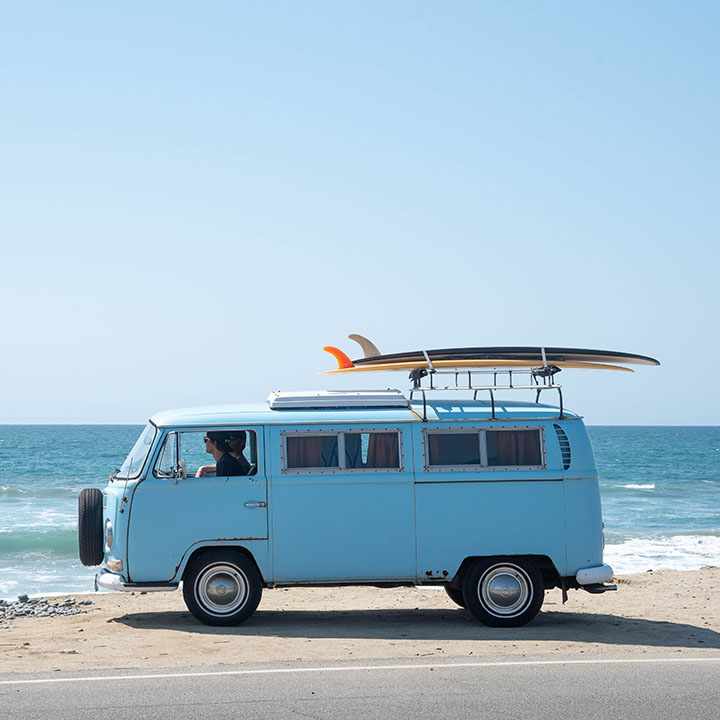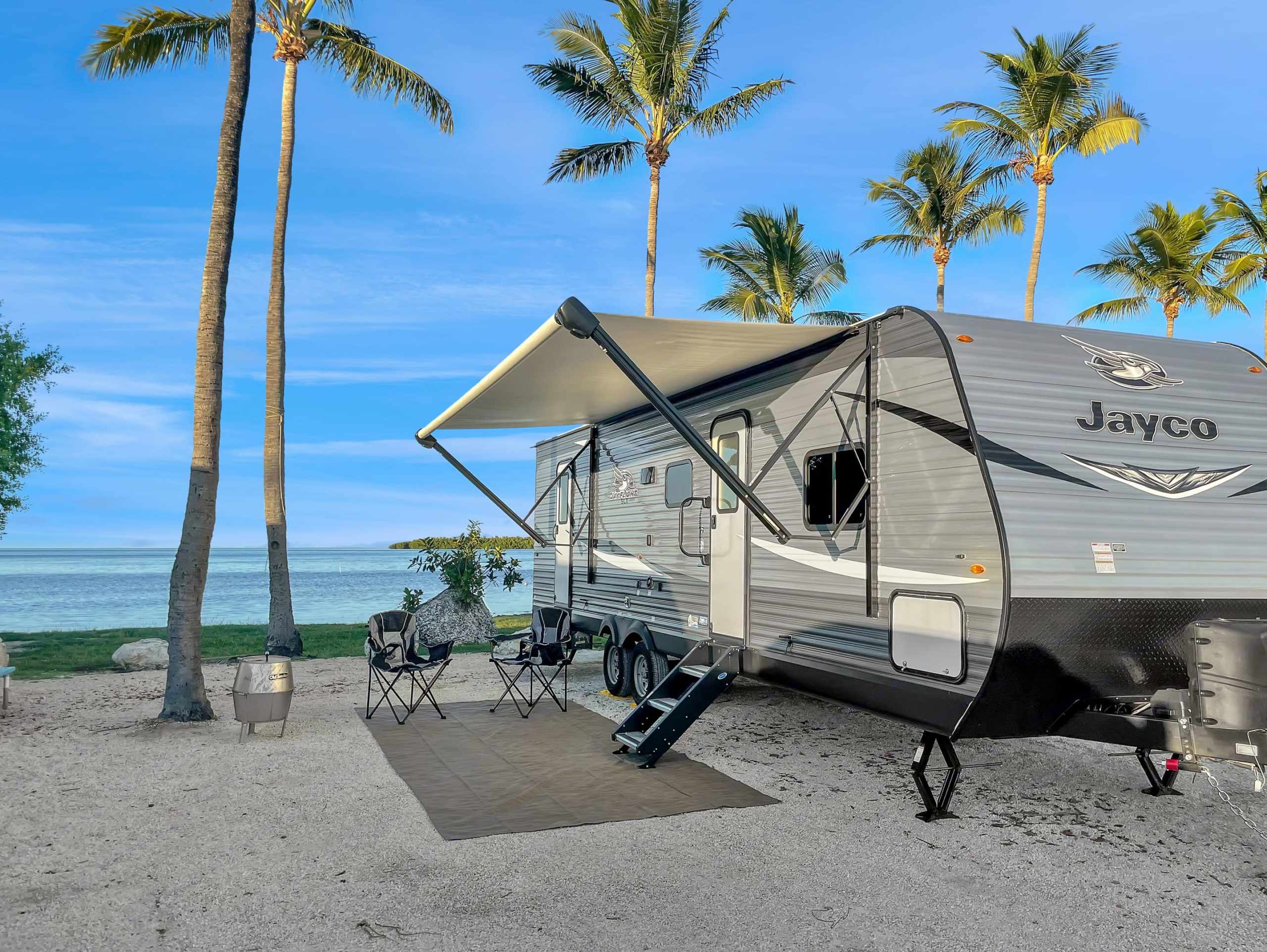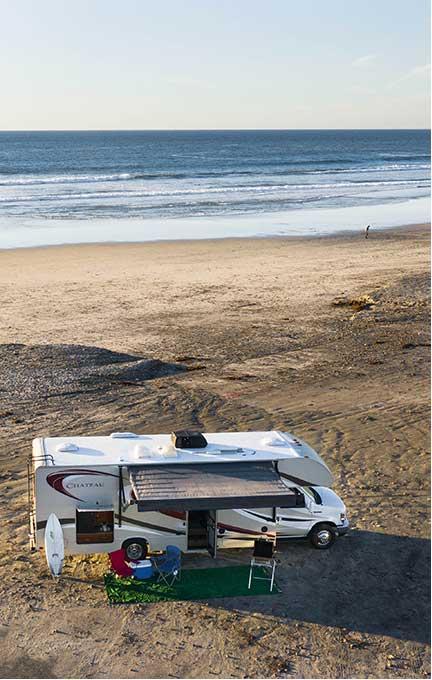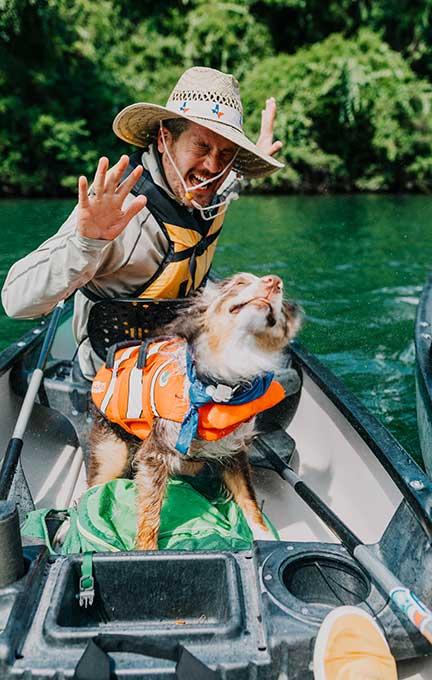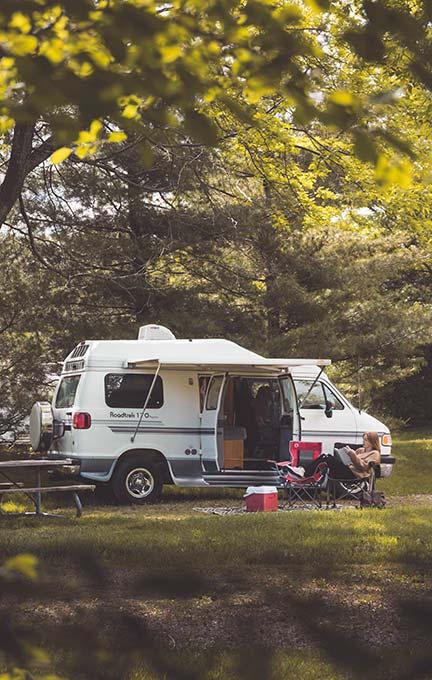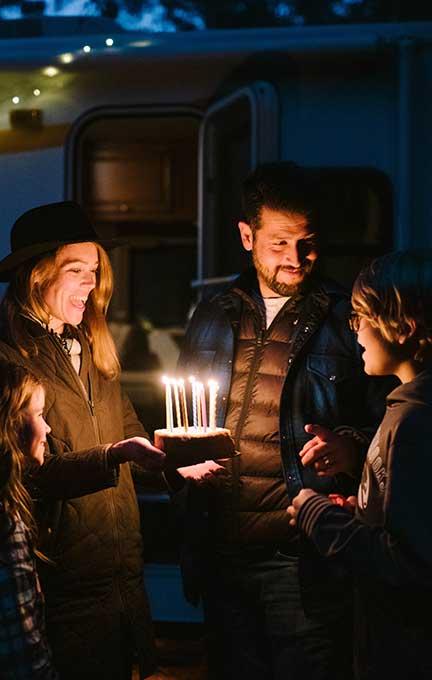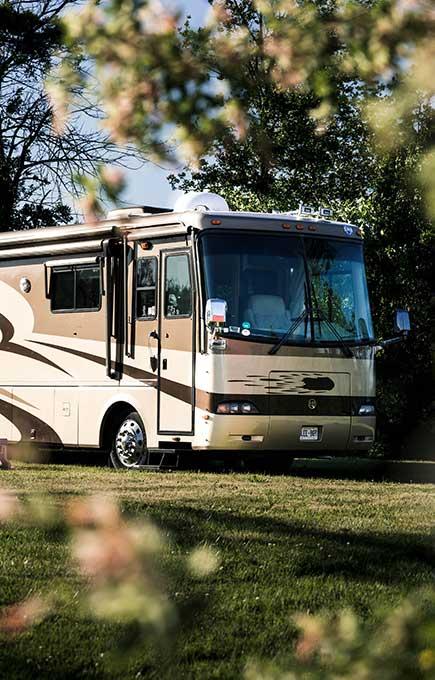Every day, more people decide to give up their brick homes for the chance to explore the country in an RV. Gone are the days of retirement RVing: people of all ages and lifestyles are selling everything and collecting experiences instead of things. For some people, simplification comes by downsizing and purchasing an RV for full-time travel. For others, it’s easy to experience a seasonal or short-term stint on the road by renting an RV. One thing that RV owners and renters have in common — besides the love of the open road — is the need to find a place to park their rig each night. Some RVers love the excitement of finding a new place to stay every so often, while other RVers want to establish a seasonal setup and plan adventures from their RV home base.
Here at Outdoorsy, since we’ve tried almost every type of overnight RV accommodation, we’ve gathered our resources and shared our thoughts to help both experienced and newbie RVers find short-term, seasonal, long-term, and even permanent places to park their RVs.
Destination-Based Camping
Before settling on a long-term or seasonal parking space, it’s best to do a little planning and base your choice on your destination.
Ask three questions before booking your long-term RV parking site:
- What part of the country do you want to explore?
- Do you plan on visiting certain national parks during your stay?
- Are you going to attend any concerts, festivals, or events?
Choosing a space around the things you want to see and do is essential. Destination-based camping makes exploring a little easier as you don’t have to venture too far from your home base to do what you want.
Choosing Your Destination
Aside from the experiences you hope to have along your journey, another thing to consider is the weather and the season.
In-Season Long-Term Camping
If you want to get away from the cold during the winter, it’s best to drive south to areas located in the Sun Belt region of the United States. Keep in mind that the Sun Belt region is a popular destination for full-time RVers. People flock to the warmer areas of the U.S. during the winter because of the temperate weather. Warmer winter camping is not only comfortable, but it also is easier because RVers can avoid freezing temperatures most of the season and generally avoid winterizing. Popular destinations, especially in the Sun Belt region, fill up quickly, and scoring a coveted RV space at a monthly RV Park is challenging if you don’t plan ahead.
Off-Season Long-Term Camping
If you want to avoid crowds of people, and you have an all-season RV, consider migrating in the opposite direction of the snowbirds. Winter camping is exciting and will allow those who crave quiet and solitude an opportunity to see the desirable middle to northern parts of the country during the off-season. Winter long-term spaces might be easy to snag since the demand for off-season RVing is low, but finding parks that don’t close for the season might be hard. In places where it drops below freezing, some parks winterize their water and sewer systems, making it a little more challenging to keep your rig topped off and cleaned out. Is seasonal winter camping possible? Yes. Just be aware that your preparation might look a little different than it would if you were to head south for the season.

How to Find Long-Term RV Parking
Once you’ve determined the area of the country you hope to explore, it’s time to search for a place to stay. Though there isn’t a one-stop shop for choosing permanent, short-term, or long-term RV parks, there are a couple of good resources that’ll make your search a little easier.
If you need help finding long-term RV parks or resorts, Campendium is an excellent online resource. On-the-go RVers will also like the AllStays app because it allows users to apply filters for location, rates, amenities, and restrictions, such as age-restricted or active lifestyle 55+ campgrounds. From private RV parks to luxury RV resorts to National Parks, there is a spot for you.
Long-Term RV Parks
Many U.S. campgrounds and National Parks provide long-term RV parking options. However, private and luxury options are the way to go if you want more on-site amenities and activities.
For the most comfortable, long-term RV parking, check out:
- Privately-Owned Parks
- Luxury RV Parks and Resorts
- KOA Camps
Privately-Owned Parks
Most privately-owned RV parks and resorts offer some extended stay options and monthly RV rates, even if the websites don’t advertise long-term parking. If you find a park that doesn’t mention long-term parking, you can give them a call prior to your trip or ask about extending your stay when you arrive.
Luxury RV Parks
Many luxury RV parks and resorts only offer long-term RV parking. The downside to this is that they may be heavily waitlisted. If you plan to camp at a luxury RV resort, try to book in advance.
KOA Camps
KOAs make excellent places to set up your RV for one night or a month. Not only are KOAs situated in desirable locations, but KOA also offers RVers and campers three types of RV parks to choose from — Holiday, Journey, and Resort. The different campgrounds provide simple and resort-style amenities. KOA also caters to extended-stay guests, and the company helps provide KOA-based resources that help seasonal RVers locate the campgrounds that permit camping for a few nights as well as the parks that have monthly rates or allow seasonal camping.
KOA’s app and the reservation section of the website are user-friendly. RVers can find and reserve a place to stay just by clicking a few buttons. Since extended-stay camping is a bit different than a 14-day stay, KOA requests that guests call the location they wish to stay in long term. Phone calls guarantee that RVers get the most accurate information regarding extended stays, long-term availability, and up-to-date rate information.

Renting or Purchasing Land for Extended-Stay Parking
Staying at an RV park or resort isn’t always possible because of the time frame, location, or age of the RVers, and some travelers steer clear of RV parks because they crave open space and fewer restrictions. While boondocking is always an option, not all RVers like to live off-the-grid, so renting or purchasing land becomes the next viable choice. It’s possible to search for RV-deeded land through the classified section of a local paper, but services such as RV Property make it easier to find lots for rent and sale on private and developer land. With a little elbow grease and some careful searching, you might be able to find an open lot, perfect for long-term or permanent RV living.
Long-Term Camping with Memberships or Clubs
RVers who like exclusivity and savings tend to gravitate toward discount clubs. Discount clubs exist because people want the subsidized cost of long-term travel and the peace of mind that accompanies the lower rates associated with these clubs. Some discount clubs, like Good Sam’s Club, provide comprehensive members-only benefits such as member parks, overnight discounts, and easy-to-use search engines to find a place to stay. Other clubs like Thousand Trails or Passport America use a modified time-share model, allowing RVers to stay in member parks for the cost of a small usage fee. Depending on the level of membership, the RVer carries determines the member fee, yearly maintenance costs, and price to stay overnight in many of the clubs’ parks.
Live the Long-Term RV Life
Regardless of the route that you take to find your short or long-term RV parking, the result will lead to adventure on the road. Outdoorsy is happy we can help point you in the right direction for RVing fun. And if you don’t have an RV of your own, you can find RVs for rent by owners offering long-term rental.
